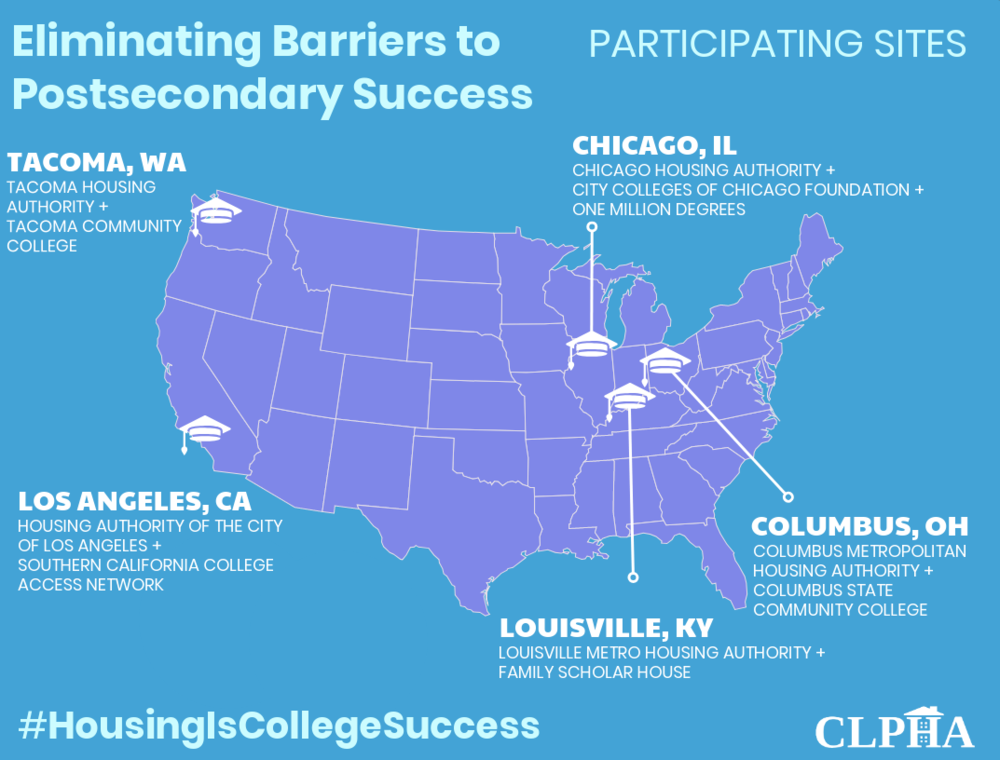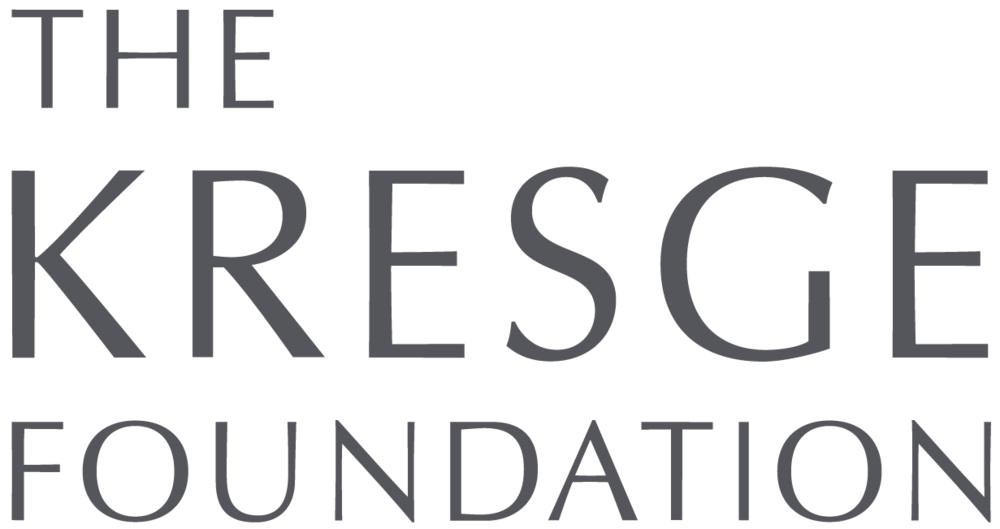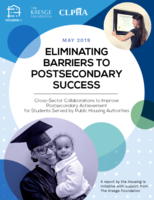 Among them, the Chicago Housing Authority (CHA) and the Tacoma Housing Authority (THA) are partnering with local community colleges to provide financial support for residents and housing insecure college students, the Housing Authority of the City of Los Angeles (HACLA) is facilitating the college application and enrollment process among young residents, and the Columbus Metropolitan Housing Authority (CMHA) and the Louisville Metropolitan Housing Authority (LMHA) are following a dual generation approach to ensure young parents can graduate with a degree.
Among them, the Chicago Housing Authority (CHA) and the Tacoma Housing Authority (THA) are partnering with local community colleges to provide financial support for residents and housing insecure college students, the Housing Authority of the City of Los Angeles (HACLA) is facilitating the college application and enrollment process among young residents, and the Columbus Metropolitan Housing Authority (CMHA) and the Louisville Metropolitan Housing Authority (LMHA) are following a dual generation approach to ensure young parents can graduate with a degree. 
 Housing Authorities and Postsecondary Institutions Turn to One Another for Cross-Sector Expertise
Housing Authorities and Postsecondary Institutions Turn to One Another for Cross-Sector Expertise
When housing providers and postsecondary institutions turn to cross-sector partners to fill their gaps in expertise, they are well positioned to tackle multi-faceted challenges facing lowincome students. Housers and postsecondary providers are more efficient and effective when they play to their strengths while leveraging the know-how of partners.
Data and Resource Sharing are Foundational to Partnerships
Data and resource sharing bolster partners’ coordinated efforts. Despite potential challenges in the initial stages of implementation, participants saw data sharing as necessary for identifying common populations, reducing the burden on low-income students, and decreasing the duplication of activities.
Building Staff Capacity Helps to Sustain and Scale Programs
Hiring new staff at a PHA can be costly; however, participants agree that it is critical to sustaining and scaling robust programs. By hiring a dedicated staff person, investing in staff trainings, and building institutional knowledge and commitment to postsecondary success, these programs are generally more successful.
Congress and the Administration Should Encourage Interagency Collaboration to Support Local Cross-Sector Partnerships
Because of its position at the intersection of many service delivery systems, HUD should develop and strengthen partnerships with other federal agencies like the Department of Education, the Department of Labor, and the Department of Health and Human Services. HUD can also help to facilitate interagency relationships at the state level between Departments of Corrections and Departments of Family and Protective Services. Such relationships will streamline postsecondary education initiatives to make them more effective and efficient and to better serve lowincome individuals.
PHAs Should Establish Joint Goals with Postsecondary Partners
PHAs and postsecondary organizations and institutions should work together to identify overlapping populations—a good way of helping potential partners to see the utility of working together. In addition to developing joint goals for the partnership, PHAs and postsecondary organizations should address how each organization’s assets can support goals.
Philanthropy Should Fund Evaluations and Start-Up Costs
Without rigorous data to support existing models, housing authorities and their partners are stymied in their efforts to engage in evidence-based strategies. HUD’s forthcoming evaluation of Project SOAR will help inform local efforts, yet more robust evaluations are needed to establish that these innovative program models, launched through crosssector partnerships, produce demonstrable outcomes. Philanthropy should help fund program evaluations and implementation costs. Other meaningful activities such as leadership development and partnership capacity building require sustained financial investments and ongoing support to succeed.
CLPHA’s Housing Is Initiative was created in 2014 to broaden and deepen efforts to form and sustain cross-sector partnerships that produce positive longterm outcomes for people served by public housing authorities. Funded by philanthropy, Housing Is focuses on systemic alignment between housing, health, and education organizations to reduce fragmented delivery systems and siloed policymaking that often fails to address the social determinants affecting low-income individuals and families holistically.
We are grateful for The Kresge Foundation’s generous support of this project as well as convening attendees and contributors, including: Chicago Housing Authority, One Million Degrees, City Colleges of Chicago, Columbus Metropolitan Housing Authority, Columbus State Community College, Housing Authority of the City of Los Angeles, Southern California College Access Network, Louisville Metro Housing Authority, Family Scholar House, Tacoma Housing Authority, and Tacoma Community Colleges.




